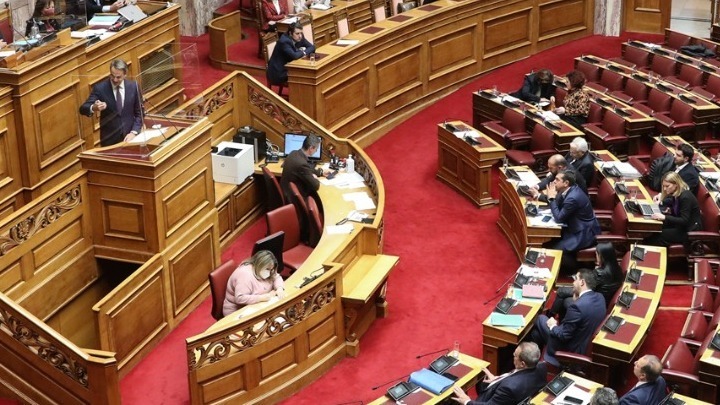Greek Parliament to vote on 2023 state budget

The Greek Parliament will vote later on Saturday on the 2023 state budget amidst conditions of great uncertainty globally due to the energy crisis, the inflation and the higher cost of money.
According to the finance ministry, the energy cirisis and the economic consequences of the war in Ukraine will continue to affect the Greek economy both through the channels of inflation and uncertainty and through the slowdown of economic growth in the eurozone slightly above the level of stalemate. To address this, the state budget envisages a cash reserve of 1.0 billion euros which will be used to continue to subsidize electricity bills in the next year. At the same time, 2023 will be the first year in which the Greek economy will function outside the austere fiscal supervision that started in 2010 with the first programme of economic adjustment. The finance ministry believes that this fact offers a sign of upgrading the economic outlook of the country and also becomes a lever to attract investments bringing Greece closer to the investment grade.
The new state budget envisages an 1.8% GDP growth rate in 2023 from 5.6% this year, with the country's GDP reaching 224.134 billion euros from 210.170 billion this year. The inflation rate is expected to slow to 5% in 2023 from 9.7% this year, private consumption is expected to grow by 1% from 7.2% this year, while private consumption will fall by 1.5% after a 0.2% increase in 2022. Private investments are expected to grow by 15.5% in 2023 from 10% this year, exports of goods and services at expected to grow by 1%, from 9.7% this year, while imports are projected to grow by 2.6% from 10.1% in 2022. The unemployment rate is expected to ease to 12.6% in 2023 from 12.7% this year.
The state budget also includes new measures to ease the burden on households and enterprises with a permanent reduction of social insurance contributions by three percentage points for 2.2 million workers in the private sector and the abolition of a special solidarity contribution for workers in the private sector, the public sector and pensioners. In 2023, the budget envisages a new increase in the minimum wage from May, higher pay for doctors in the state health system, higher housing subsidy for students, incentives to boost full employment, suspending VAT on new building constructions and launching a housing programme for the new generation. Finance Minister Christos Staikouras said that additional fiscal space will be achieved to be used primarily for the support of the most vulnerable households of the country.

